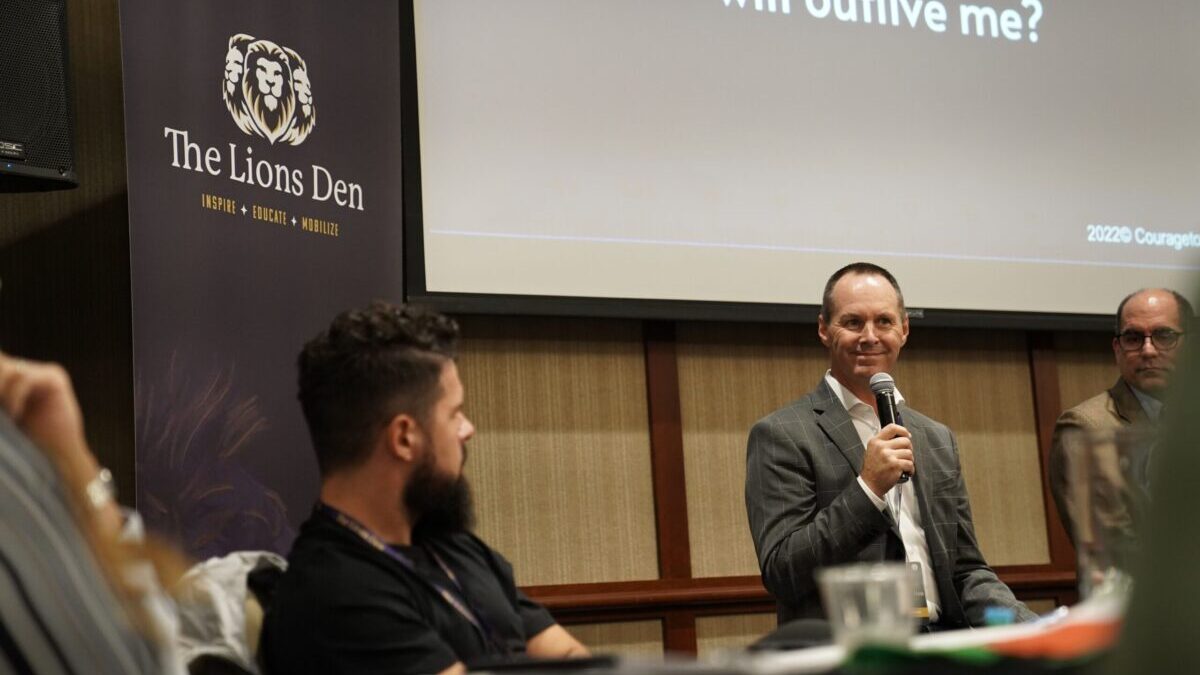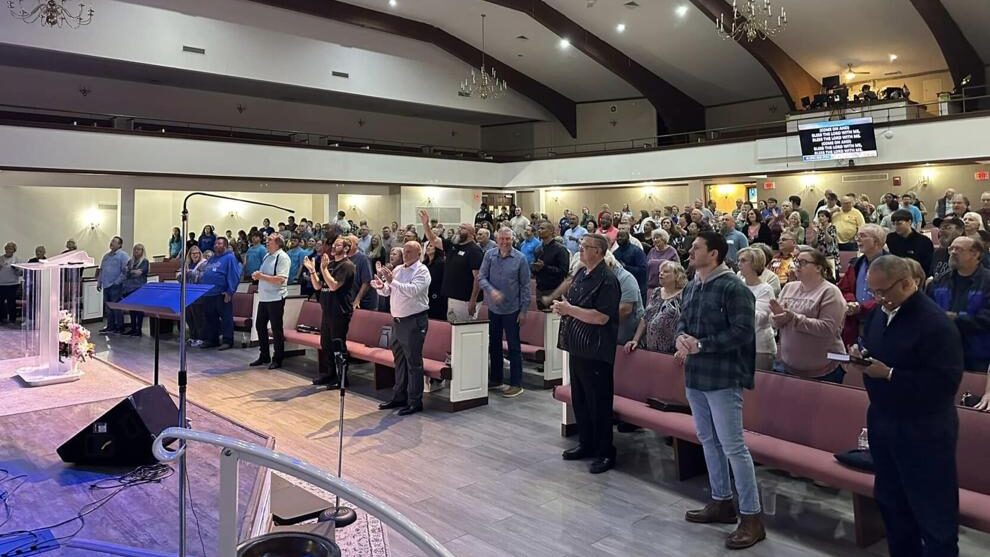Eight years ago, Lori Chambers was working as a bank executive in Birmingham, Alabama. She wondered how her faith in Christ fit in with her job. When she mentioned her questions to a friend at church, he extended an invitation that changed her life.
He urged her to attend a local meeting of some two dozen Christian professionals who convened periodically to discuss the integration of business and faith in Christ. Known as Business as Mission, the group was part of a global movement focused on “the multiple bottom lines of economic, social, environmental and spiritual outcomes,” according to the movement’s website. Each local Business as Mission group is autonomous, though the umbrella organization Business as Mission Global convenes an annual online summit. This year’s is slated for April 27.
Through her participation in Business as Mission, Chambers found herself within a stream of Christians who see business as more than a way to turn profit. It’s a means of advancing God’s agenda in the world.

Challenges
Business as Mission participants are not “storing up mammon for the sake of storing up mammon,” said Chambers, now a development officer with Hope International, an organization that helps people rise from poverty through business loans among other avenues. “God has asked me to steward financial resources and to do it with excellence.”
Business as Mission participants in several cities across the country host annual events known as The Lions Den, where Christian entrepreneurs present business ideas with potential Christian impact to investors looking for Christ-honoring ventures.
The first Lions Den occurred in Birmingham 10 years ago, with similar events launched over the following decade in Dallas, Tampa, Portland and the Silicon Valley. Lions Den events have led to millions of dollars in funding for Christian business ventures.
Despite this success, the notion of business as mission is not without critics.
Some see it as an oxymoron to claim capitalism advances God’s purposes for the world. Sen. Bernie Sanders of Vermont released a book in February titled “It’s OK to Be Angry About Capitalism,” which argues unfettered business ventures are to blame for many of America’s problems. Within Christian circles, the Institute for Christian Socialism claims “the socialism of the gospel is irreconcilable with capitalism.”
Amid such anti-business sentiment, some have wondered whether Christians can indeed advance God’s Kingdom through business.
Multiple avenues
Business-minded believers across the world have joined Chambers in answering with an emphatic yes.
Among them is Josh Walsh, an independent film producer in Franklin, Tennessee, who who helped produce the movie “Jesus Revolution.” Walsh worked alongside Christian filmmakers Jon and Andy Erwin, who also have produced “I Can Only Imagine” and “October Baby” among other movies.
Christian businesspeople have multiple avenues for gospel impact, Walsh said, including ministering to employees, using profits for philanthropy and producing quality products that open doors to speak about Jesus.
“You can do something so excellent — like Chick-fil-A or In-N-Out Burger — that people just rave about it, and then they want to know who these people are and why they do it,” Walsh said. “That’s such an impact.”
Chris Chancey utilized business to advance missions when he founded Amplio Recruiting, an Atlanta-based staffing agency that helps international refugees find jobs in America. The company aims to ask each client how they can pray for that person’s family. After a client finds employment, Amplio tries to get invited into the client’s home to share the gospel.
Though Amplio doesn’t track the number of people to profess faith through their efforts, men and women have come to a saving knowledge of Christ through their ministry.
Some business owners may pursue “money at all costs,” Chancey said, but “there are still some businesses and ways of operating that would be more of an ethical approach — a win/win engagement.”
In such a business, profit can indicate success at impacting lives, said Chancey, who sold Amplio in 2021 but remains involved as a consultant.
“The original intent and expectation of business” includes “a component of improving the lives of the people connected to that business in some capacity,” Chancey said. “Capital was a byproduct of that. Capital is the outcome of serving the customer well.”
Chancey now resides in Jacksonville, Florida, and continues to participate in Business as Mission, including regular attendance at Dallas and Birmingham Lions Den events. He and fellow Christian businesspeople refuse to believe capitalism is inherently evil. They have seen too many lives impacted for good.
Dan Stafford, event manager for the Birmingham Lions Den, said utilizing business as mission can even open doors for the gospel in places closed to traditional churches and ministries.
Many Christians “think they have to go into missions or ministry” to make an impact for Christ, Stafford said. “But we want them to also look at going into Business as Mission.”
They “can work in their area of expertise and impact the Kingdom at the same time,” he noted. “It’s a different way to spread the gospel because in a lot of countries, you can’t have traditional missions agencies and churches.”
Lions Den unites Kingdom-minded investors, Christian entrepreneurs
Who would fund a movie about the writing of a Christian song? Probably not Hollywood. But Jon and Andy Erwin found the answer at a unique gathering of Christian business professionals called the Lions Den.
In the early stages of producing their 2018 motion picture “I Can Only Imagine”— which tells the story of how the Christian band Mercy Me wrote their hit song of the same title — the Erwins needed investors. So they found themselves at the annual Lions Den event in Birmingham, Alabama, where Christian entrepreneurs present their ideas to potential investors who want their money to generate impact for Jesus rather than just profit.
Their idea went over well. Lions Den participants provided approximately 20% of the $8 million required to make the film, which grossed $86 million and won a Dove Award for Inspirational Film of the Year.
“Now we have a brand and a name in Hollywood that is respected,” said Josh Walsh, former Erwin Brothers chief operating officer. “And to think that came from a group of guys in Alabama — not ultrawealthy billionaires, but guys that were successful in their companies and had a vision to impact the world through pooling their finances … and getting behind what they believe in.”
The Erwin Brothers are not the only believers to find investors at the Lions Den.
Over the past decade, Lions Den events across America have connected Christian investors with God-honoring business ventures. The inaugural 2014 Lions Den in Birmingham led to similar events in Dallas, Silicon Valley, Portland and a new event in Tampa, Florida, launched last month.
The events stem from a global movement called Business as Mission. It involves Christian businesspeople convening periodically in cities across the world to discuss the integration of their faith and their profession. Among their aims are impacting employees, using profits for philanthropy and producing excellent products that open doors for gospel witness.
Those aims led to the creation of the Lions Den, which some describe as a Christian version of the reality television show “Shark Tank.” But the Lions Den aims to identify fishers of men rather than shark-like investors. At each event, three or four preselected entrepreneurs make pitches to a panel of judges who ask them tough business questions. If audience members find a pitch compelling, they can connect with the entrepreneur.
The Birmingham Lions Den has been hosted by Samford University and draws more than 500 participants.
Past Lions Den events have generated between $100,000 and $5 million for worthy business ventures, said Lori Chambers, who helps organize the Birmingham event. The pitches are surrounded by two days of workshops, seminars and networking opportunities for entrepreneurs and accredited investors. These investors are defined by the Securities and Exchange Commission as individuals with a $200,000 annual income (or a $300,000 annual income with a spouse or partner) in each of the prior two years and a reasonable expectation of the same for the current year or people (individually or with a spouse or partner) with a net worth over $1 million, excluding their primary residence.
God ‘at work in business’
The Lions Den is a “chance to remember that God is at work in business,” Chambers said. The investors “are taking huge risks by investing in these companies, taking a chance on these companies that have a great idea” with “a very clear spiritual impact.”
For Chris Chancey, the most valuable facets of presenting at the Lions Den were the mentoring and networking opportunities rather than money. He founded Amplio Recruiting in 2014, an Atlanta-based staffing agency that helps place refugees from other countries in U.S. jobs. The business aims to pray with each client and find opportunities to share the gospel with them. That venture led Chancey to present at the 2017 Lions Den in Birmingham.
Since that presentation, Amplio has expanded from three locations to 20 across America. While Chancey didn’t take any money from Lions Den attendees, their support helped fuel the company’s expansion, he said. Chancey sold the business in 2021 but remains involved as a consultant.
Resources ‘behind their faith’
“There’s so much value beyond just the financial piece,” said Chancey, who has invested money in other companies at the Lions Den.
Business professionals like Chancey have made the Lions Den a powerful vehicle for advancing the Great Commission, Chambers said.
“What I see with the Lions Den ecosystem is people choosing to love God by putting their resources behind their faith,” she said.
The next Lions Den is April 19-20 in Dallas.








